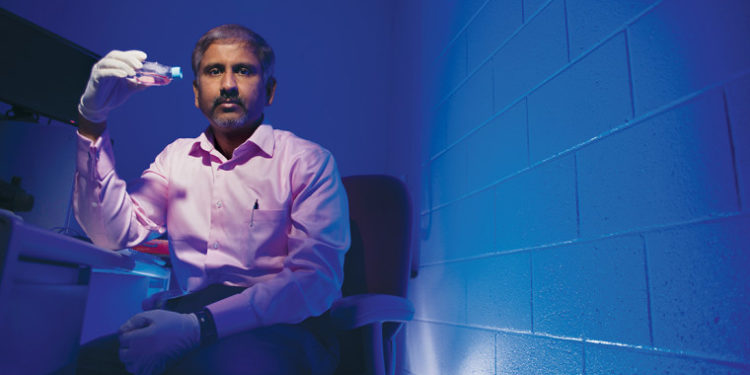
GTx And UTRF Enter Into Exclusive License Agreement To Develop SARD Drug Candidate To Treat Castration-Resistant Prostate Cancer
Source
MEMPHIS – GTx, Inc. today announced that it has entered into an exclusive worldwide license agreement with the University of Tennessee Research Foundation (UTRF) to develop its proprietary selective androgen receptor degrader (SARD) technology which potentially can degrade and inhibit all forms of androgen receptor (AR), including those resistant to current therapies, to inhibit tumor growth in patients with progressive castration-resistant prostate cancer (CRPC).
The SARD technology was co-discovered by Dr. Duane Miller, Van Vleet Endowed Professor and chair of the Department of Physiology, and Dr. Ramesh Narayanan, associate professor of medicine, both at the University of Tennessee Health Science Center.
“UTRF is excited to expand our partnership with GTx through this exclusive license and to see the SARD technology begin commercial development,” said UTRF Vice President Richard Magid. “For years, GTx has been a great partner to UTRF and the University of Tennessee in developing Enobosarm. We have every confidence that they will be successful in advancing the SARD technology into clinical use.”
About Castration-Resistant Prostate Cancer Therapy Androgen deprivation therapy (ADT) is generally the initial treatment for men with metastatic prostate cancer. Despite initial response rates, nearly all men eventually develop progressive disease following ADT; this is referred to as castration-resistant prostate cancer (CRPC). The development of various agents for CRPC, such as androgen synthesis inhibitors and androgen receptor antagonists, has improved overall survival in these patients. However, progressive disease and resistance to these agents eventually develops in most cases. The mechanisms for resistance are not fully understood, but it is believed that CRPC growth is highly dependent on androgen receptor (AR) activity. Approximately one-third of CRPC patients develop resistance to currently available treatments, due in part to the emergence of mutations of the AR in late stage disease. These mutations contain a splice variant sequence where the main binding site, the ligand binding domain, necessary for the action of current therapies is lost. A therapeutic agent that would safely degrade or inhibit all forms of the AR, including those without the ligand binding domain,, may be uniquely positioned to address these splice variant mutations in certain patients. For more information, visit www.uthsc.edu.